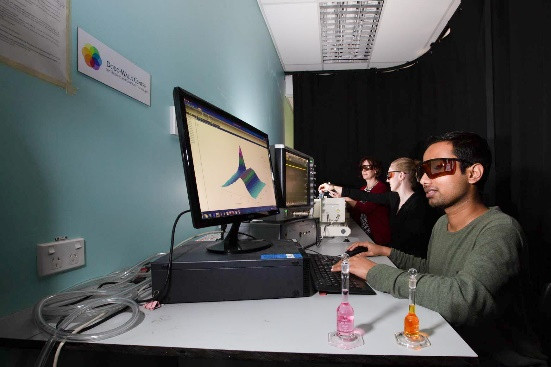HNO Donors
Developing and testing novel HNO donor molecules
HNO donor molecules are molecules which decompose to generate HNO. HNO donors are of interest for use in studies on the chemistry and biochemistry of HNO, since HNO is unstable and can therefore not be prepared and stored. Current HNO donor molecules decompose slowly (typically in mins to hours) to release HNO; however given that biomolecules react rapidly with HNO, there is an urgent need for HNO donors which rapidly generate HNO. Together with Professor Paul Sampson and Associate Professor Alex Seed at Kent State University, OH, USA, we are synthesizing HNO donors which generate HNO via photolytic cleavage of a protecting group followed by rapid HNO release. At AUT we carry out studies involving laser flash photolysis – initiated cleavage of the HNO donors to elucidate the kinetics and mechanism(s) of the decomposition of the photoactive HNO donors and to investigate the reactions between HNO with a range of molecules of interest.

Vinay, Ruth and Nicola using the laser flash photolysis instrument.